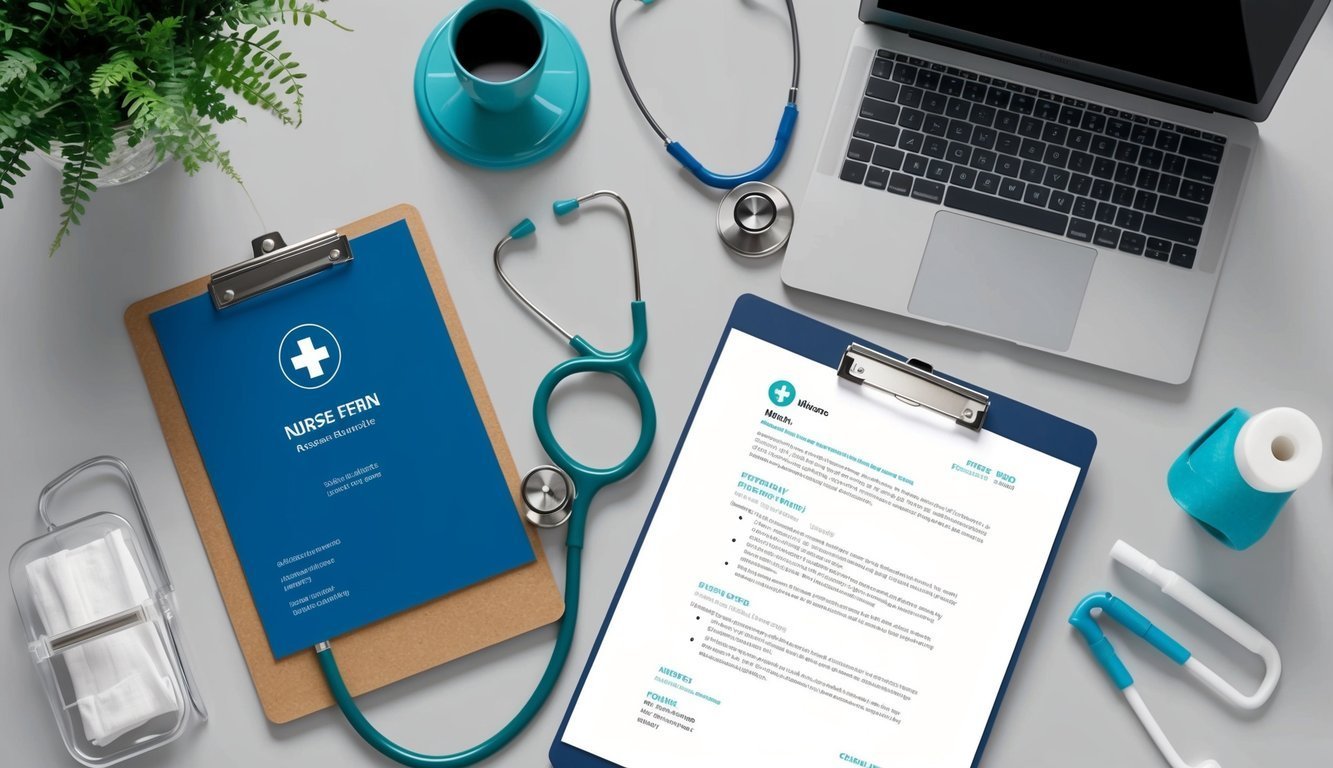Crafting a standout resume is essential for nurses transitioning to remote roles. The Nurse Fern resume template provides a structured way to showcase your skills and experiences effectively. With this template, you can highlight your unique qualifications and ensure you catch the attention of hiring managers.
Using the Nurse Fern resume template simplifies the process of writing your resume.
It focuses on critical areas like your professional summary, nursing credentials, and key skills, making it easier for potential employers to see why you are the perfect fit for a position.
This template also allows you to present your work experience clearly, which can set you apart in a competitive job market.
If you’re ready to advance your nursing career and explore remote opportunities, the Nurse Fern resume template can be your roadmap.
It’s designed to help you create a compelling resume that reflects your strengths and prepares you for the next step in your professional journey.
Key Takeaways
- A strong resume is vital for remote nursing job applications.
- The Nurse Fern resume template helps you highlight essential qualifications.
- Clear organization of skills and experience can enhance your job prospects.
Professional Summary
A strong professional summary captures your skills and experiences in a concise manner.
This section is essential for making a good impression on hiring managers and showcasing your fit for remote nursing roles.
Crafting Your Narrative
When writing your professional summary, you should focus on the key points that highlight your abilities.
Start with your job title and years of experience.
For example:
- I have 5+ years of experience as a Registered Nurse.
- I specialized in remote patient care.
Including specific skills related to remote nursing, such as telehealth proficiency and strong communication abilities, is crucial.
You want to show potential employers how you’ve made a difference in previous roles.
Mention notable accomplishments, like:
- I improved patient satisfaction scores by 20%.
- I also successfully managed a caseload of 30 patients remotely.
This narrative gives a clear picture of your professional background.
You are painting a vivid image that makes it easy for employers to see your value.
Showcasing Remote Roles
Highlighting your experience in remote roles is vital in today’s job market.
You need to illustrate how your past positions relate to the responsibilities you will take on in remote nursing roles.
Include relevant examples like:
- I developed patient education programs for online platforms.
- I also conducted telehealth consultations for diverse patient populations.
These specific instances show your adaptability and understanding of remote environments.
You could also mention any tools you are skilled in, such as electronic health records (EHR) systems.
Consider using a bullet list to improve readability:
- Telehealth Expertise
- Patient Management Software
- Strong Interpersonal Skills
By focusing on elements relevant to remote nursing, your summary will resonate better with hiring professionals.
Tailoring your summary this way increases your chances of standing out in your job search.
Nursing Credentials
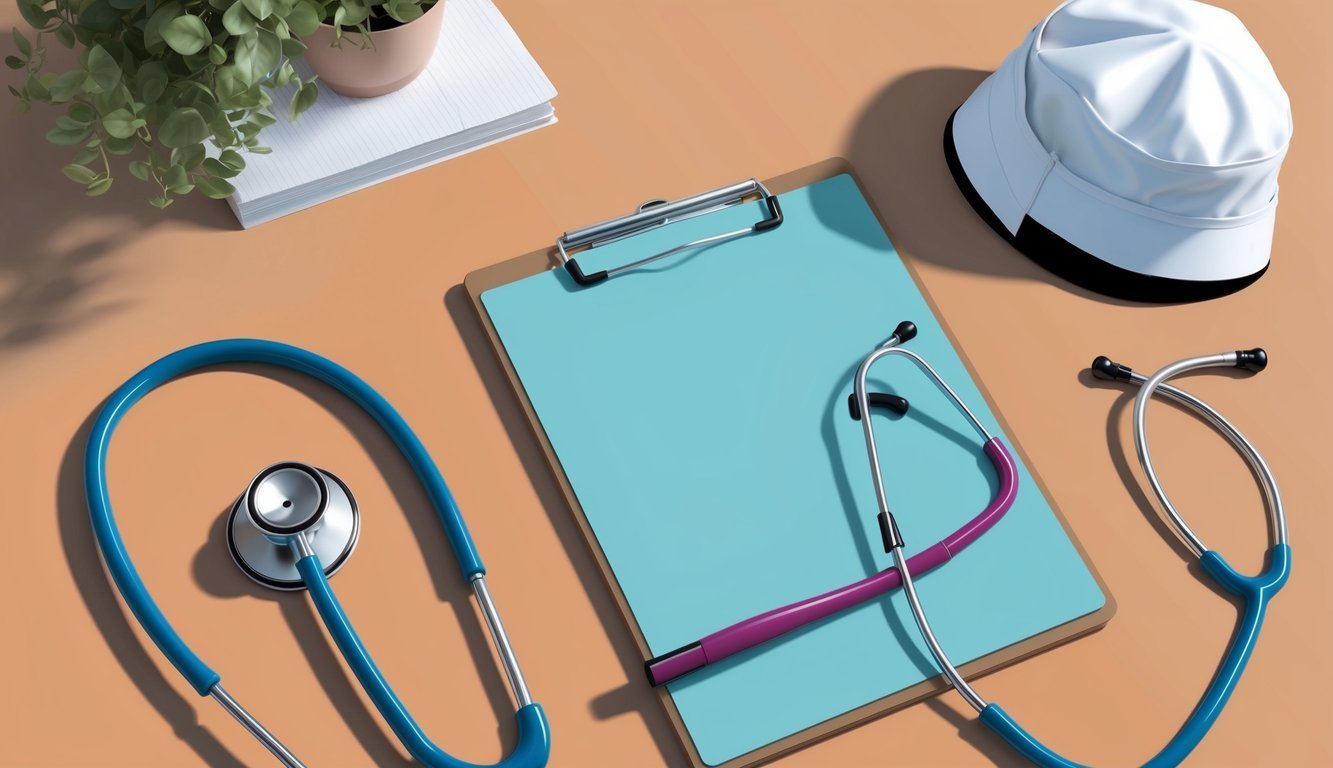
Having the proper nursing credentials is essential for advancing your career.
It demonstrates your qualifications and commitment to providing high-quality care.
The key components of nursing credentials include licensing, certifications, and professional memberships.
Licensing and Certifications
Licensing is a must-have for nurses.
You need to obtain a nursing license in your state to practice legally.
This often involves passing the NCLEX-RN exam.
Your license must remain active, so keeping up with state requirements is crucial.
Certifications are additional credentials that show your expertise in specific areas of nursing.
Common certifications include:
- Certified Registered Nurse Anesthetist (CRNA)
- Certified Nurse Midwife (CNM)
- Family Nurse Practitioner (FNP)
These certifications often require further education and passing an exam.
Check requirements and renewals through the American Nurses Association.
Professional Memberships
Joining professional nursing organizations can enhance your career and networking opportunities.
Many of these organizations offer access to resources, continuing education, and job boards.
Examples include:
- American Nurses Association (ANA)
- National League for Nursing (NLN)
- American Association of Nurse Practitioners (AANP)
Membership often requires an annual fee but provides valuable tools to elevate your resume.
Being part of these associations shows your commitment to professional growth.
For more information, explore the Nurse.org resources page.
Work Experience
Your work experience section is critical for showcasing your skills and qualifications.
It reflects your job history and gives potential employers insight into your nursing expertise.
Here’s how to present this information effectively.
Detailing Nursing Jobs
When detailing your nursing jobs, focus on the specific roles you held.
List your positions in reverse chronological order, starting with the most recent.
Use concise bullet points to describe your responsibilities and tasks.
For example:
- Registered Nurse at ABC Hospital
- I managed patient care for up to 10 patients daily.
- I also collaborated with doctors on treatment plans.
This format makes it easy for hiring managers to scan your experience quickly.
Include the type of workplace, such as hospitals or clinics, especially if relevant to remote nursing roles.
Highlighting Accomplishments
Highlighting your accomplishments sets you apart and shows how you made an impact.
Use quantifiable results where possible.
Instead of just stating your duties, express what you achieved.
For instance:
- I improved patient satisfaction scores by 20% through enhanced communication.
- I also developed a training program that reduced onboarding time by 30%.
By focusing on measurable outcomes, you present yourself as a valuable candidate.
Bullet points are again effective here for clarity and focus.
Remote Nursing Roles
If you are targeting remote nursing positions, tailor your work experience accordingly.
Detail any previous remote roles or experiences that required independent work and self-management.
Consider including:
- Specific remote nursing tasks, such as telehealth consultations.
- Skills related to technology use, like proficiency with electronic health records.
For example:
- Telehealth Nurse for XYZ Services
- I conducted virtual assessments and provided care plans to patients.
- I also managed patient follow-ups and documentation through digital platforms.
This approach shows that you are prepared for remote work.
Incorporating specific duties related to split-second decision-making or multi-tasking can further showcase your suitability for these roles.
For a great layout, consider using a remote nursing resume template to present your experience professionally.
Key Nursing Skills
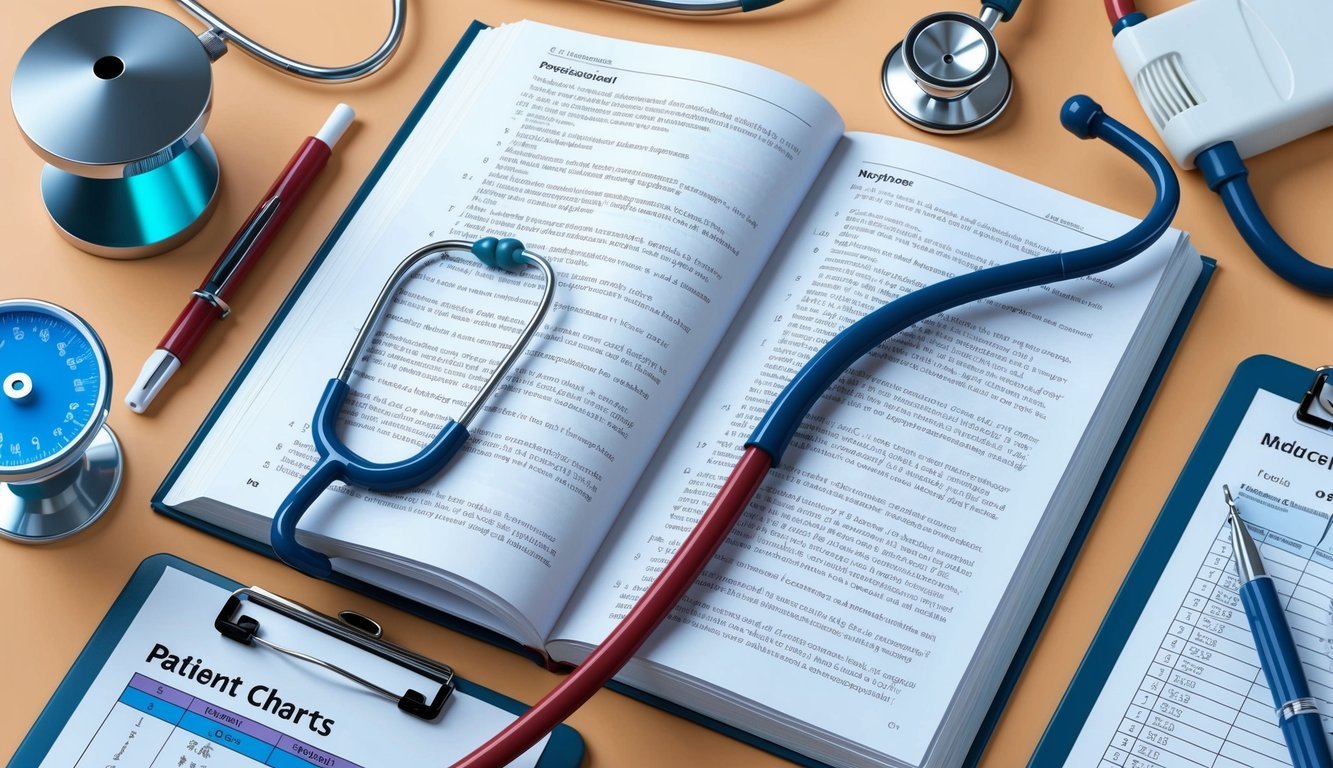
In nursing, having a strong skill set is essential for providing quality patient care.
You need both technical skills and soft skills to excel in your role.
Here are the key components of each.
Technical Skill Set
Your technical skills include the specific abilities needed to perform nursing tasks effectively.
These skills can be categorized as follows:
| Skill | Description |
|---|---|
| Medical Assessments | Conducting physical examinations and understanding patient histories. |
| Vital Signs Monitoring | Checking and recording blood pressure, pulse, and temperature. |
| Emergency Care | Administering CPR and first aid when necessary. |
| Electronic Health Records (EHR) | Utilizing software to manage patient information. |
| Clinical Proficiency | Performing procedures such as IV insertions or wound care. |
These skills are critical for ensuring safety and efficacy in patient care.
You can enhance your technical abilities by accessing resources like Nurse Fern for tools and templates.
Soft Skills and Attributes
In addition to technical skills, soft skills greatly affect your ability to connect with patients and work in a team.
Key soft skills include:
| Skill | Importance |
|---|---|
| Communication | Clearly conveying information to patients and colleagues. |
| Empathy | Understanding and sharing patients’ feelings. |
| Time Management | Prioritizing tasks effectively under pressure. |
| Adaptability | Adjusting to changing situations and environments. |
| Teamwork | Collaborating efficiently with healthcare teams. |
These attributes improve patient experiences and help create a supportive work environment.
Developing these skills is as important as honing your technical abilities for your nursing career.
Supplementary Information
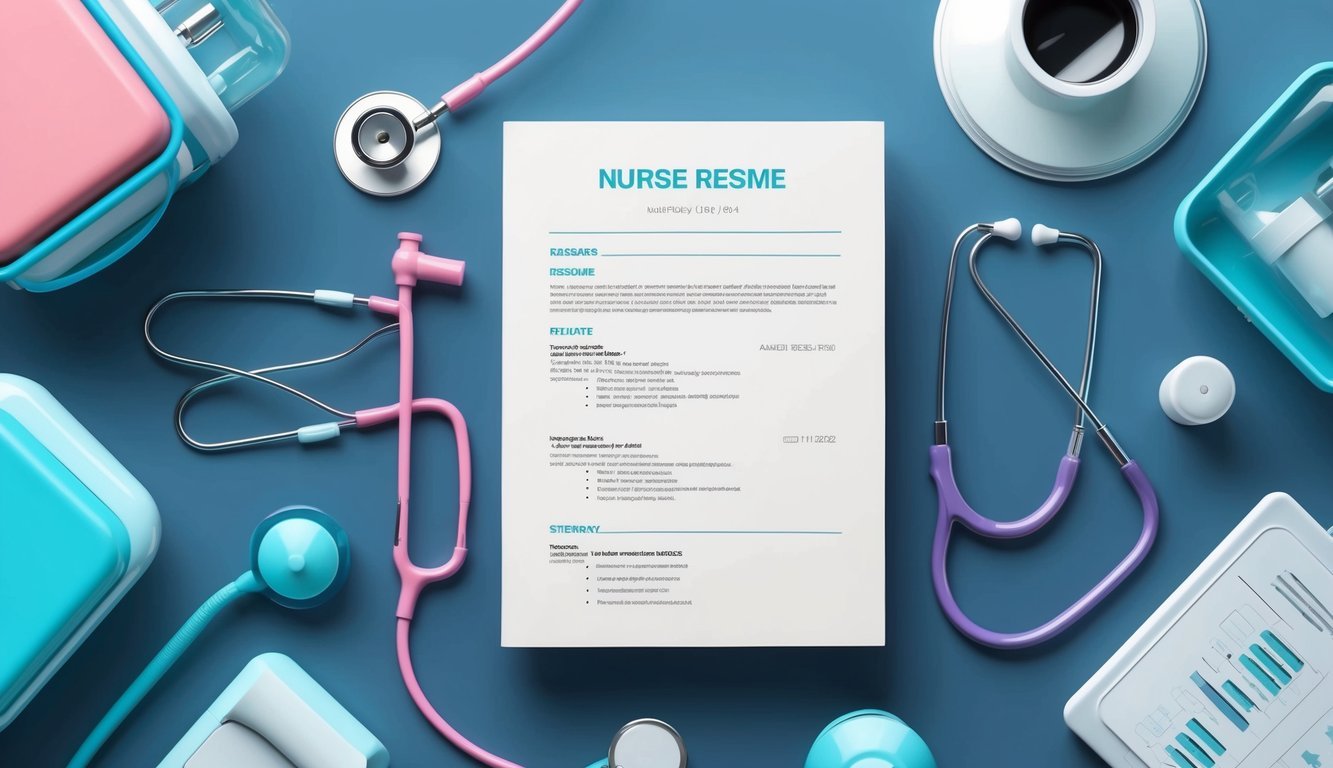
Including supplementary information in your resume can strengthen your application.
Highlighting your achievements, community involvement, and professional endorsements can make you stand out as a candidate.
Awards and Recognitions
Awards and recognitions provide concrete evidence of your skills and contributions.
Listing your accomplishments enhances your credibility.
Consider organizing them in a table format for clarity.
| Award/Recognition | Year | Issuing Organization |
|---|---|---|
| Nurse Excellence Award | 2023 | State Nursing Association |
| Best Community Service | 2022 | Local Health Agency |
| Leadership Award | 2021 | National Nurses United |
Be sure to include any relevant certifications, such as BLS or ACLS, as these can also be considered accolades in the nursing field.
Achievements should be recent and relevant to the positions you are applying for.
Voluntary Engagements
Detailing your volunteer work shows your commitment to the community and the nursing profession.
Include both short-term and long-term engagements, mentioning specific roles, duties, and skills you gained.
For example:
-
Health Fair Volunteer
Assisted in providing free health screenings to underprivileged communities. -
Local Clinic Support
Offered nursing support at a free clinic on weekends to address community health issues.
These experiences highlight your dedication and may differentiate you from other candidates.
References and Recommendations
References and recommendations can significantly impact your job application.
Include contacts who can speak positively about your skills and work ethic.
Tips for Choosing References:
-
Professional Relationships: Select supervisors or colleagues who can vouch for your nursing abilities.
-
Education Connections: Consider former instructors or mentors who know your strengths.
Format to Include:
| Name | Position | Contact Information |
|---|---|---|
| Jane Smith | Nursing Supervisor | jane.smith@email.com |
| Dr. John Doe | Professor of Nursing | john.doe@email.com |
Having a few well-chosen references can enhance your resume, providing future employers with credible insights into your capabilities.
Frequently Asked Questions
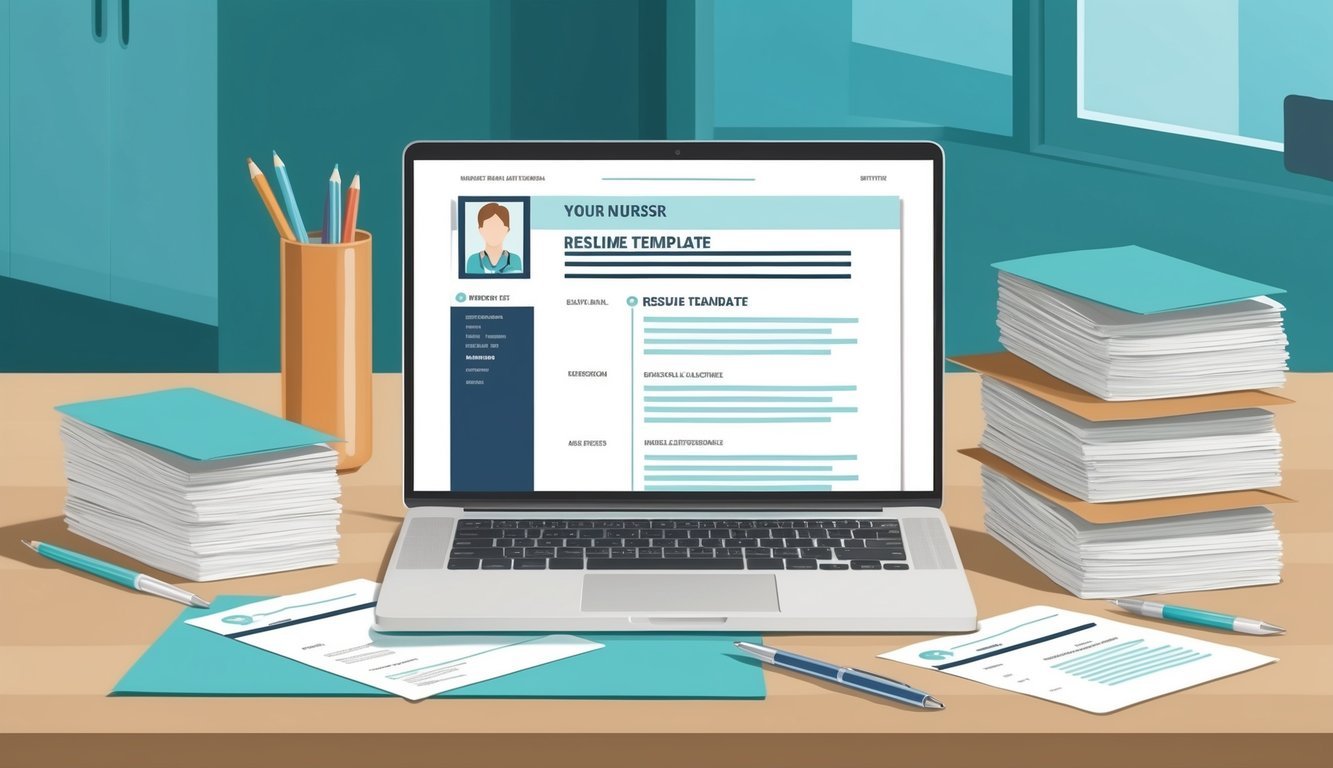
When applying for nursing positions, having the right resume is critical.
There are specific components you should include, as well as strategies for making your resume and LinkedIn profile appealing to employers.
What are the essential components to include in a nursing resume?
A nursing resume should have your contact information, a professional summary, relevant work experience, education, licenses, and certifications.
Also, include skills specific to nursing and any relevant volunteer work.
How can I tailor my nursing resume for a remote job position?
To tailor your resume for remote positions, highlight skills such as communication, self-motivation, and technical proficiency.
Include any previous remote work experience or training in telehealth or virtual care.
What is the best resume format for nurses seeking employment?
The best format is usually the chronological resume.
It lists your work history starting from the most recent job.
This format is preferred as it clearly shows your career progression in nursing.
How should I highlight my nursing experience and credentials on my resume?
Make sure to list your nursing experience clearly, including the job title, employer, and dates.
Use bullet points to describe your responsibilities and achievements.
Highlight any specialized training or certifications relevant to the position.
Could you suggest strategies to make a nursing resume stand out to potential employers?
Use action verbs and quantify your achievements when possible.
For example, stating “managed a patient case load of 15” shows your capability.
Tailor your resume for each job, reflecting the keywords used in the job description.
What advice is available for nurses looking to enhance their LinkedIn profiles for job searches?
To enhance your LinkedIn profile, keep your information current and complete.
Use a professional photo, write a strong summary, and connect with other professionals.
Engage by sharing articles and participating in relevant groups.

